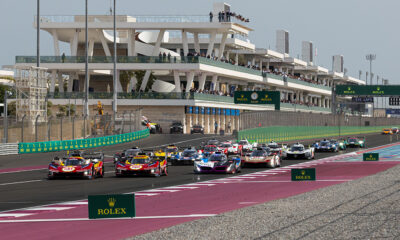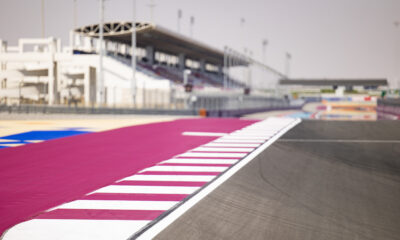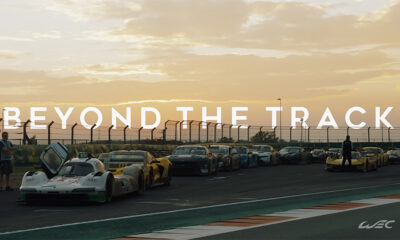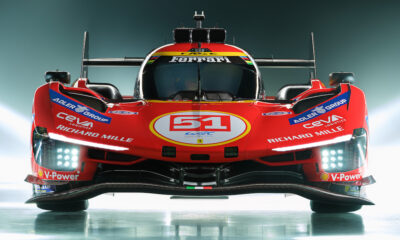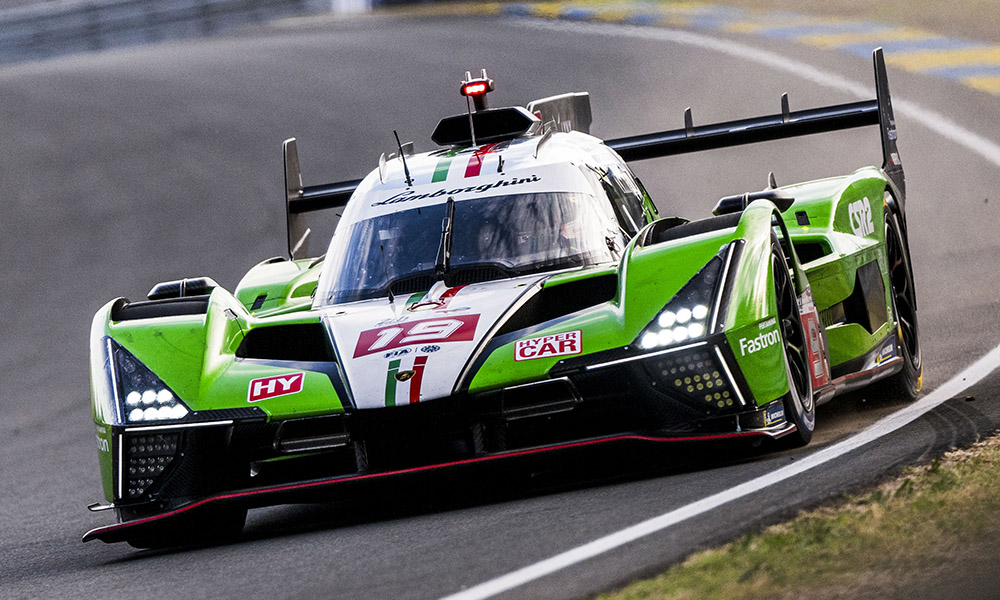
Photo: Charly Lopez/DPPI
Lamborghini CEO Stefan Winkelmann has ruled out the possibility of the Italian brand pursuing a hydrogen program in the FIA World Endurance Championship in the future.
While the likes of Toyota, Alpine and BMW have expressed interest in the hydrogen class that is due to come on stream in the 24 Hours of Le Mans in 2028 following the delay announced by the ACO last month, Lamborghini has taken a different view.
Winkelmann explained that Lamborghini is instead focused on hybridization, currently served by its LMDh program in WEC and the IMSA WeatherTech SportsCar Championship, with synthetic fuels and full electric cars on its agenda further down the line.
Asked whether Lamborghini could consider hydrogen during a gathering with reporters at Le Mans last month, Winkelmann replied: “This is not an option for us.”
Lamborghini chief technical officer and acting motorsport boss Rouven Mohr added: “From a pure technological point of view, it’s an interesting thing. But as Lamborghini, we have our hybridization road map with classic combustion engines.
“We are a small brand, and this applies also to technology development. We have to focus on what is our priority. We cannot spread our effort on 10,000 different things. We have a clear strategy and hydrogen is not on our priority list.”
Winkelmann said that the final step in its hybridization drive will be the reveal of the successor to the Huracan sports car at the Pebble Beach Concours d’Elegance.
A GT3 version of the as-yet unnamed car will be presented by Lamborghini in 2025 ahead of a 2026 race debut, with a Super Trofeo version to follow in 2027.
“We will be the first sports car manufacturer getting all the cars hybridized, which is an important achievement that the customers appreciate a lot,” Winkelmann continued.
“The second step in our opinion will be to stay with as much hybrid as possible with super sports cars, and to observe very closely how the opportunities can be with synthetic fuels, and to go into the next generation with those types of approach.
“For the more daily useable car, we still believe that, from the 2030s onwards, going full electric, like we showed with the Lanzador [electric concept car] at Pebble Beach last year. This is our strategy.”
While the successor to the Huracan will be hybrid, Rohr made it clear the GT3 version will not be, while also revealing that the race car will use the base engine from the road model and not the 3.8-liter turbocharged V8 found in the SC63.
“For sure since there is Balance of Performance in GT3, it will not be hybrid, and the engine has to be modified,” clarified Rohr.
On whether the Super Trofeo version could be a hybrid, he added: “It could be possible, but on this we have a clear opinion. We have to be based on our customer possibilities.
“As long as you have high voltage in the car, you exclude a lot of customers because you need a different structure of racing team.
“We are doing customer racing for the customers. We have a technology field in part in the GT3, but the customer racing is the baseline for everything. We have to have a car that the teams can operate.”
Track Day Version of SC63 Under Consideration
Rohr acknowledged the possibility that the SC63 could be converted into a track day car along the same lines as Ferrari’s 499P Modificata.
A mock-up of a potential track day version of the SC63 was on display inside Lamborghini’s Super Trofeo hospitality during the Imola and Spa rounds of the WEC sporting an orange livery.
But Rohr said no final decision has been made regarding a track day car, although he said that the extension of the Hypercar ruleset through to the end of the 2029 season gives Lamborghini more time to consider the matter.
“It’s a bit too early to speak about it, because there are some boundary conditions we have to fulfil to clearly separate the race car from this,” said Rohr. “The extension of the homologation period for sure has an influence on this.
“For sure the race car is priority one, and then we have to discuss how these cars would be technically separated, because you can’t just make a different badge. It looks easy from the outside but it’s not so easy in reality.”
Asked if selling track day versions of the SC63 could help fund the program, Rohr replied: “For sure, it would be highly attractive on the financial side.”




















